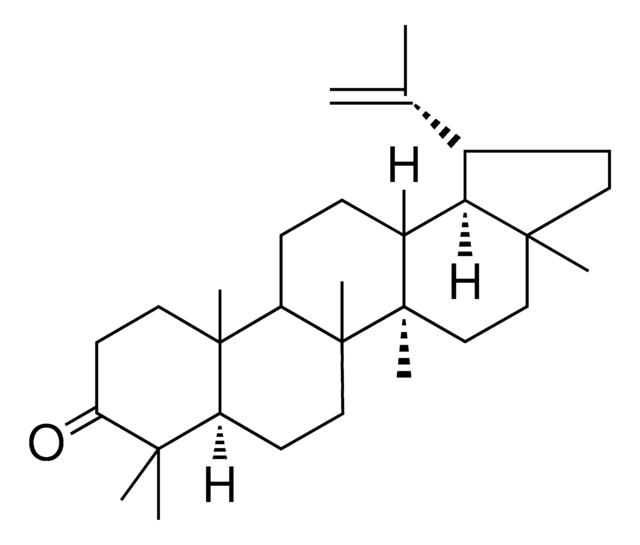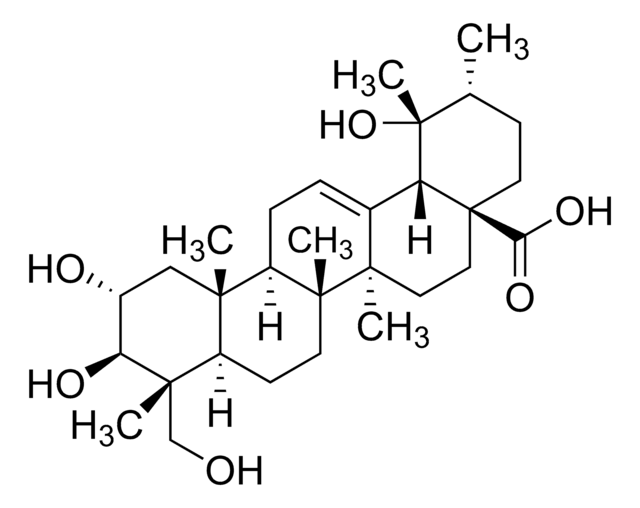08172
Cycloartenol
≥90% (GC)
Sinónimos:
(3S,5R,8S,9S,10R,13R,14S,17R)-17-((R)-1,5-Dimethyl-hex-4-enyl)-4,4,13,14-tetramethyl-tetradecahydro-cyclopropa[9,10]cyclopenta[a]phenanthren-3-ol, 9,19-Cyclo-24-lanosten-3β-ol, Handianol
About This Item
Productos recomendados
assay
≥90% (GC)
form
powder
InChI
1S/C30H50O/c1-20(2)9-8-10-21(3)22-13-15-28(7)24-12-11-23-26(4,5)25(31)14-16-29(23)19-30(24,29)18-17-27(22,28)6/h9,21-25,31H,8,10-19H2,1-7H3/t21-,22-,23+,24+,25+,27-,28+,29-,30+/m1/s1
InChI key
ONQRKEUAIJMULO-YBXTVTTCSA-N
¿Está buscando productos similares? Visita Guía de comparación de productos
Application
- Genome-Wide Investigation of Oxidosqualene Cyclase Genes Deciphers the Genetic Basis of Triterpene Biosynthesis in Tea Plants - Research on cycloartenol′s synthesis pathways through the genetic study of oxidosqualene cyclase in tea plants, providing insights into the enhancement of plant sterols beneficial for human health (Du et al., 2024).
Packaging
Storage Class
11 - Combustible Solids
wgk_germany
WGK 3
flash_point_f
Not applicable
flash_point_c
Not applicable
ppe
Eyeshields, Gloves, type N95 (US)
Certificados de análisis (COA)
Busque Certificados de análisis (COA) introduciendo el número de lote del producto. Los números de lote se encuentran en la etiqueta del producto después de las palabras «Lot» o «Batch»
¿Ya tiene este producto?
Encuentre la documentación para los productos que ha comprado recientemente en la Biblioteca de documentos.
Los clientes también vieron
Nuestro equipo de científicos tiene experiencia en todas las áreas de investigación: Ciencias de la vida, Ciencia de los materiales, Síntesis química, Cromatografía, Analítica y muchas otras.
Póngase en contacto con el Servicio técnico
















